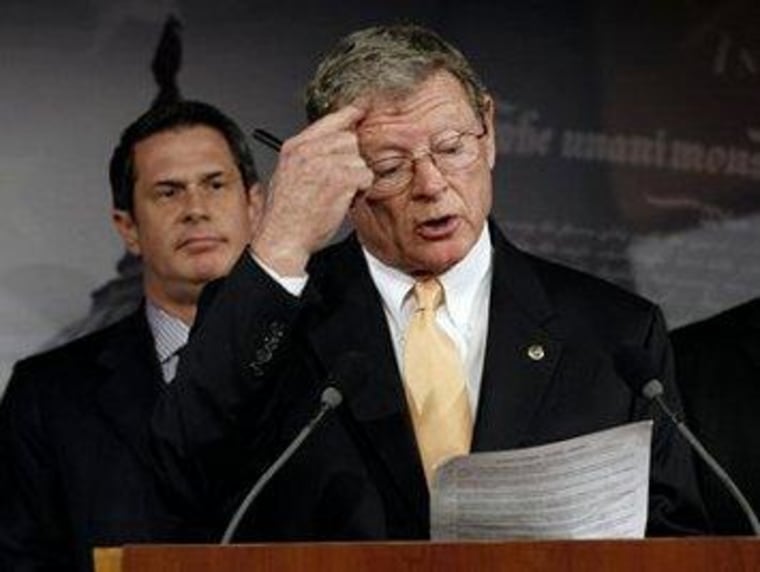Sens. David Vitter (R-La.) and James Inhofe (R-Okla.), neither of whom has ever been celebrated as champions of the environment, have decided to ratchet up their pressure on the Environmental Protection Agency. What seems to be the trouble? According to The Hill, the Republicans want the EPA to detail their relationships with environmental groups, such as the Sierra Club, so the public can see how these groups are shaping policy.
"The American people deserve to understand the process EPA follows when crafting the environmental policies under which they must live," Inhofe and Vitter wrote Monday in a letter to acting EPA administrator Bob Perciasepe."It is important for Congress to understand the relationship between EPA and nongovernmental organizations, particularly as it relates to the coordination and influence over public policymaking," the letter stated. "Moreover, these relationships have the potential to push states and other stakeholders out of the process. Accordingly, releasing the correspondence between the EPA and these entitles is in the public interest."
The push for EPA transparency seems more petty than substantive. The relationships between most public officials, NGOs, and non-profits are hardly nefarious, and the fact that the Environmental Protection Agency might occasionally seek input from prominent environmental organizations hardly seems worthy of congressional inquiry.
But for the sake of conversation, let's say Inhofe and Vitter are on to something here, and in the name of transparency, agencies and departments like the EPA have a responsibility to taxpayers to disclose, in detail, which groups they've contacted and why. It's important to "understand the relationships" because the "coordination" has an "influence over public policymaking."
But if that's true, why not also apply those same standards for disclosure to Sens. Vitter and Inhofe, too?
I think it'd be fascinating, for example, to know which lobbyists are able to have "influence over public policymaking" by meeting with Inhofe, Vitter, and their aides. The far-right senators are worried about the Sierra Club chatting with the EPA about clean-air standards? Fine. I'm worried about ExxonMobil lobbyists chatting with Republican senators about the same thing.
Look again at the above excerpt and replace "EPA" with "Congress." Do the American people deserve to understand the process Congress follows when crafting the policies under which they must live? When federal lawmakers maintain relationships with special-interest groups and corporate lobbyists, isn't it possible these relationships have the potential to push other stakeholders out of the process?
It would seem, then, that it's in the public interest for senators to disclose which organizations and lobbyists they coordinate with when writing legislation. If transparency is worthwhile, why should these standards be applied to the EPA and not Inhofe and Vitter themselves?
